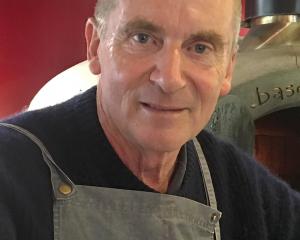
Somewhat overshadowed by the subsequent rancorous antics at the Wednesday health select committee meeting, when Labour’s health spokeswoman Ayesha Verrall and Health NZ troubleshooter Lester Levy enjoyed a high-profile stoush, committee members earlier that afternoon spent a happier 30 minutes on infrastructure.
Which might sound dull, but given that the auditor-general recently suggested that New Zealand will need to spend $115 billion on health infrastructure in the next three decades — a hell of a lot of new Dunedin hospitals, no matter how many billions it might end up costing — this actually matters more than a little bit.

It would, therefore, be reassuring to know that the government had a plan to manage all this. Or not.
To the mind of Act New Zealand committee member Cameron Luxton this vexed question offered the perfect opportunity for the government to explore private-public partnership to build health infrastructure, which was something that Labour associate health spokeswoman Tracey McLellan also had on her mind — although with a sense of mortal dread rather than eager anticipation.
Dr McLellan anxiously posed the same question to the assembled HNZ officials which her Labour colleague, Taieri MP Ingrid Leary, had asked Health Minister Shane Reti the previous day — whether, as reported by the ODT last month, selling the new outpatients building and leasing it back to HNZ was an option being considered to contain the spiralling costs of the new Dunedin hospital.
Dr Reti had disavowed all knowledge of any such discussion, despite the ODT report quoting from a ministerial briefing which had been sent to him and other senior ministers.
HNZ chief executive Margie Apa said the offending paper would have gone to ministers as part of a wider brief of options to look at, but she said it was ‘‘not on the table’’ at the minute.
But that was not the only southern healthcare concern bothering Labour MPs; an evidently well-briefed Ms Leary wanted to know if there were any plans to make Christchurch the centre of excellence for the South Island for tertiary-level care.
Translating that from health speak, what Ms Leary wanted to know were two things: (a) would services now provided at Dunedin Hospital no longer be provided at a new Dunedin hospital and (b) could so many services be moved away that Dunedin would no longer be a teaching hospital?
This is the question which is at the heart of why the Dunedin City Council is campaigning so hard against cuts to the hospital, and why the Otago Daily Times is so adamant in its support for that campaign. Quite apart from the vital personal issue of health services provision, if the hospital is pared back it could affect the University of Otago medical school, and if the university is adversely affected the entire city will suffer a catastrophic blow to its economy.
Swallow one fly, and we all know how that nursery rhyme ends up.
It would be nice to report that reassuring statements were made, but they were not. HNZ officials said it was part of normal service planning to consider shifting things, and Dr Levy followed up by saying that if moving a service was going to produce a result that would be more effective for patients and populations ‘‘we would look at that, but I have seen no information on that’’.
Ms Leary pressed him, asking if Dr Levy could not reassure an anxious Dunedin of its future and got an even less inspiring response: ‘‘You are asking for guarantees but things evolve.’’
It would be nice if the new Dunedin hospital could hurry up and evolve, beyond several dozen piles, into a building where patients were treated and doctors were trained, but Dr Levy was not able to guarantee that either.
He told New Zealand First list MP Jenny Marcroft that it was still to be determined what was able to be delivered in Dunedin in terms of service provision, given the amount of money which had been stipulated by the government is the hospital’s full and final budget.
For anyone south of the Waitaki that was a worryingly imprecise answer.










